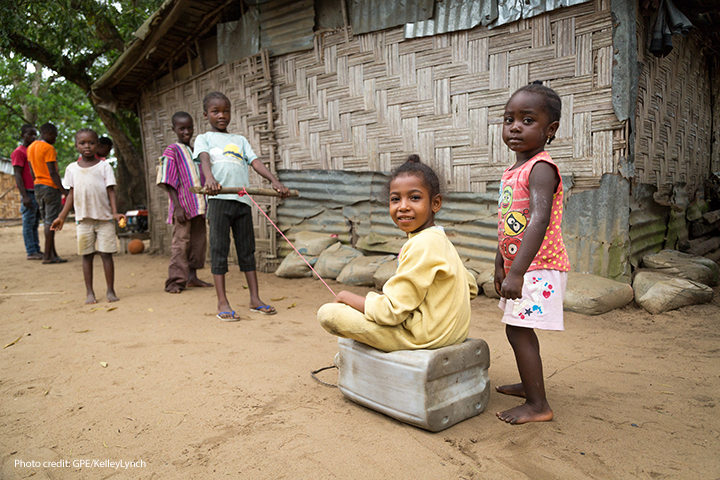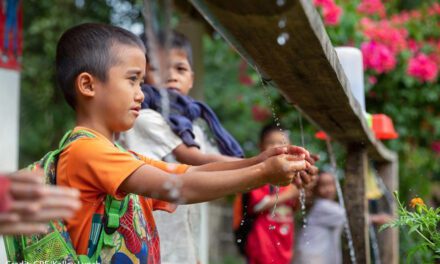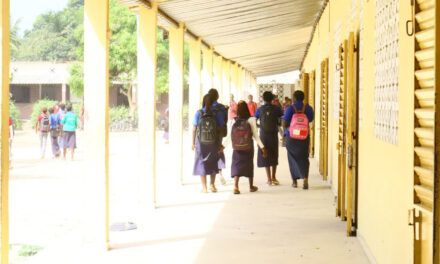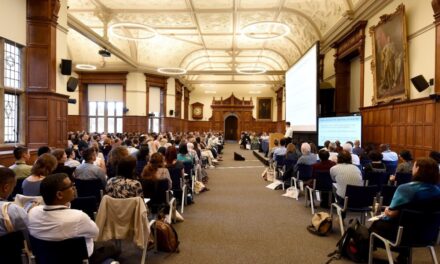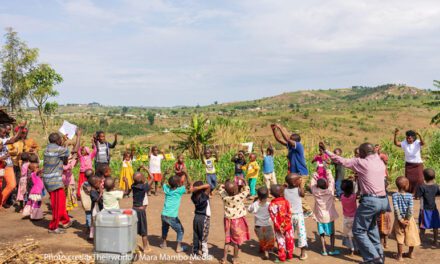This article is by the theme convenors of one of six 2023 UKFIET conference themes, ‘Holistic learning processes and outcomes’: Jaya Gajparia, Senior Lecturer in Sociology, London South Bank University, and Anita Reilly, education consultant. The convenors have gathered some highlights from conference sessions relating to their theme.
There were an array of sub-topics and threads at the September UKFIET conference this year on the theme of holistic education, both at the in-person conference, as well as the online day. Tying all the presentations together was a concern with educating the whole person and this in turn linked to the wider conference theme of education for social and environmental justice. While presentations had entry points across various levels of the socio-eco system – such as the system level, the school level and the community level, a key take-away is that holistic education needs simultaneous approaches across all levels. And a prominent theme was the importance of supportive and nurturing relationships across the home, school and community levels as the bedrock of student well-being and learning.
Indeed, the theme of well-being featured prominently and linked to recurring questions that were raised throughout the conference around what skills do learners need to succeed in today’s world? What skills are most linked to social and environmental justice? And what skills, competencies, attitudes and beliefs to learners of today need to thrive. Social and emotional learning was highlighted as important for children and youth in a changing and unpredictable world. Many of these skills are linked to learners’ well-being and improved mental health – an area that has garnered more attention in a post-Covid-19 world. A fascinating presentation from Burundi found that a ‘Teaching at the right level’ initiative in Burundi improved learners mental health – and this was without an explicit social emotional learning element. This implies that by engaging children in meaningful learning at their level improves their well-being.
Several lively symposiums and presentations tackled the complex issue around how to assess these social emotional and life skills which are often difficult to define and measure. An engaging session by the ALiVE initiative delved into their work on developing context-relevant open source tools in East Africa. What was striking about this initiative was that it was from the ground up and it was funded in such a way that time was allowed to build local researchers’ capacities around measuring life skills so that the expertise was coming from local researchers who know the context. How to shift the power to ensure that the skills and competencies being promoted are culturally relevant was central to many presentations, particularly in the area of social and emotional skills, and wider life skills.
Closely linked to the above are the education approaches, skills and competencies around environmental education with presenters discussing approaches that engage learners in exploring environmental issues, allow them get close to nature, and equip them with the skills on environmental and social justice activism.
An engaging discussion followed one panel which found that focusing on well-being improved learning outcomes for all. A key question posed was: How do we scale up holistic approaches in a cost-effective way? The answer was that effective holistic education approaches don’t necessarily have to cost more and it’s key to remember that focusing on social emotional skills and supportive relationships doesn’t just improve well-being, but also improves academic learning – making it not just the most human approach, but also the ‘smart’ approach.
With many thanks to all the speakers and authors who contributed to sharing critical insights under this sub-theme.

